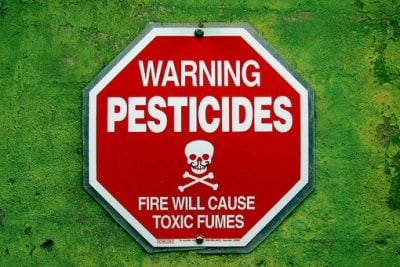In Need of a Responsible Agriculture

In Quebec, a recent parliamentary committee on pesticides uncovered the near-morbid addiction of industrial agriculture to chemical pesticides and the serious effects of these products on the environment and human health.
A shift becomes necessary.
Industrial agriculture has harmful impacts on the environment, biodiversity and human health that threaten the very survival of this industry. Yield research is driving growers to encroach on riparian strips, to use massive doses of fertilizers, pesticides and herbicides, and to plow soils excessively.
These practices in turn cause erosion and sterilization of agricultural soils, the disappearance of pollinators, pollution of rivers and the destruction of aquatic fauna. Not to mention the loss of nutritional value and flavour of foods produced in this way and the greenhouse gas emissions caused by these practices.
As the popularity of certified organic products among the population increases, the benefits of agroecology and permaculture have been demonstrated and action is needed to address climate change, agriculture industrial industry needs to review its practices.
The following example illustrates the seriousness of the situation. Genevieve Labrie, an entomologist and researcher at the Mirabel Agri-Food Research Centre, recently conducted the country’s largest study of pests in large crops. After 5 years of monitoring at more than 800 sites in Quebec, she found that only 4% of the fields would have required an insecticide seed. Very few fields showed an abundance of insects large enough to cause damage. Why then were they treated?
Given the devastating impact of insecticides on biodiversity and human health, the results of this research should challenge all stakeholders in the agricultural world about these irresponsible practices.
A shift is needed towards responsible agriculture based on soil protection and revitalization, pollinator protection, chemical input reduction and integrated pest control. These well-known approaches are slow to take hold to the point where agricultural activity is hindering its own development by incurring unnecessary spending on farmers and the health care system. Governments, trade unions, producers and professionals must all do their part.
In the same way that foresters have incorporated notions of forest ecology and new approaches into their practice, shouldn’t farmers rethink their production methods in order to better protect citizens and ensure development of responsible agriculture? The government and agronomists have a great responsibility in this regard and must support producers in this endeavour.
*
Note to readers: please click the share buttons above or below. Forward this article to your email lists. Crosspost on your blog site, internet forums. etc.
Jacques Prescott is a biologist and Associate Professor, Chaire en éco-conseil, Université du Québec à Chicoutimi.
Featured image is from CounterPunch

